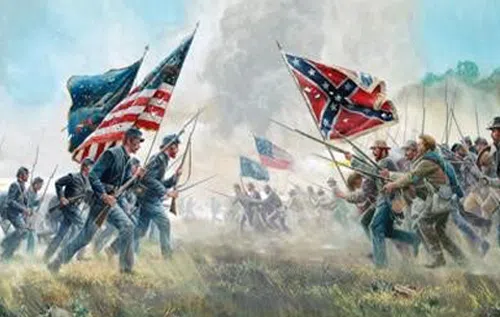As the American Civil War drew to a conclusion in May 1865, Southerners were aware of the humiliation they had suffered, alongside the death and destruction the War had inflicted on their towns, families and homes. Emerging first in the mood of traumatised defeat, southerners soon embraced the Lost Cause ideology, a narrative that aimed to rewrite the events of the Civil War and change how history is remembered. “The Legend of the Lost Cause began as mostly a literary expression of the despair of a bitter, defeated people over a lost identity,” wrote Rollin G Osterweis. Southerners looked to portray the Confederate cause in a positive light, reformulating the arguments over slavery, reconstruction, the American constitution and self-identity. Yet the Lost Cause ideology was equally a defensive mechanism, designed to protect the Confederacy against accusations of treason and dishonourable conduct.
An important contention made by the Lost Cause ideology was that secession had little or nothing to do with slavery. Defence of states’ rights, rather than the preservation of slavery, was the primary cause of secession, and thus a cause of the War. It argued that slavery was in fact a positive good: it was moral, since the enslaved were happy, grateful and contributed to America’s economic development. At the heart of the Lost Cause ideology was white supremacy, the belief that emancipation was a mistake and that a Black man and white man could never be politically and economically equal.
The theory also explained the reason for the Confederate’s defeat: that the North only won because it outnumbered the Confederate armies and possessed more resources. A religious cult later developed around Robert E. Lee, the Confederate General and commander of the Confederate States Army. The lack of Southern resources, manufacturing and manpower doomed it to be a failure from the start, hence the term “Lost Cause.”
Other ideas were also central to the Lost Cause: that the Confederates were a heroic, saintly people and that southern women steadfastly supported the cause by sacrificing their husbands and sons. The Lost Cause became a part of the historical narrative of Southern history, while equally setting expectations for the present and future of America.
Today, the Lost Cause retains little historical validity in academic circles. “The Lost Cause legacy to history is a caricature of the truth,” Allan Nolan once wrote. “The caricature wholly misrepresents and distorts the facts of the matter. Surely it is time to start again in our understanding of this decisive element of our past and to do so from the premises of history unadulterated by the distortions, falsehoods, and romantic sentimentality of the Myth of the Lost Cause.”


